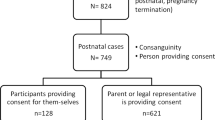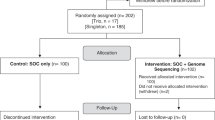Abstract
Comprehensive genome analysis may reveal secondary findings (SFs) including pathogenic variants of genes other than those originally targeted. Comprehensive genetic analysis of rare diseases is generally performed as research in Japan. Therefore, the status and difficulties in SF disclosure remain unclear. To obtain information for the appropriate disclosure of SFs in rare diseases, we conducted a survey on how SFs are handled in clinical practice by facilities that outsource comprehensive genetic testing to other facilities. The response rate was 66.7% (40/60). Among the responding facilities, 55% had a policy of disclosing SFs with clinical utility and considered targeting actionable SFs with high penetrance. These facilities had difficulties in determining the disclosure targets (51%) and in genetic counseling (38%). Improving genetic literacy, establishment of surveillance systems, and providing insurance coverage for medical care to unaffected carriers were commonly cited as solutions to these difficulties. A comparison of the willingness to disclose SFs between overseas and in Japan showed more reluctance in Japan (86% vs. 65% for actionable SFs and 62% vs. 16% for non-actionable SFs). The group with difficulty in determining disclosure targets was significantly more likely to discuss this at conferences with other facilities and to refer guidelines. This suggests that the group with difficulties was unable to make decisions solely at their own facility and sought collaboration with other facilities. These findings suggest the necessity for a system that allows consultation with experts across facilities and guidelines that set forth policies for determining SFs.
This is a preview of subscription content, access via your institution
Access options
Subscribe to this journal
Receive 12 print issues and online access
$259.00 per year
only $21.58 per issue
Buy this article
- Purchase on Springer Link
- Instant access to full article PDF
Prices may be subject to local taxes which are calculated during checkout


Similar content being viewed by others
References
Bertoli-Avella AM, Beetz C, Ameziane N, Rocha ME, Guatibonza P, Pereira C, et al. Successful application of genome sequencing in a diagnostic setting: 1007 index cases from a clinically heterogeneous cohort. Eur J Hum Genet. 2021;29:141–53.
Ross JP, Dion PA, Rouleau GA. Exome sequencing in genetic disease: recent advances and considerations. F1000Res. 2020;9:F1000 https://doi.org/10.12688/f1000research.19444.1. Faculty Rev-336.
Takahashi Y, Mizusawa H. Initiative on rare and undiagnosed disease in Japan. JMA J. 2021;4:112–8.
Kalia SS, Adelman K, Bale SJ, Chung WK, Eng C, Evans JP, et al. Recommendations for reporting of secondary findings in clinical exome and genome sequencing, 2016 update (ACMG SF v2.0): a policy statement of the American College of Medical Genetics and Genomics. Genet Med. 2017;19:249–55. [published correction appears in Genet Med. 2017;19:484].
Green RC, Berg JS, Grody WW, Kalia SS, Korf BR, Martin CL, et al. ACMG recommendations for reporting of incidental findings in clinical exome and genome sequencing. Genet Med. 2013;15:565–74. [published correction appears in Genet Med. 2017;19:606].
de Wert G, Dondorp W, Clarke A, Dequeker EMC, Cordier C, Deans Z, et al. Opportunistic genomic screening. Recommendations of the European Society of Human Genetics. Eur J Hum Genet. 2021;29:365–77.
van El CG, Cornel MC, Borry P, Hastings RJ, Fellmann F, Hodgson SV, et al. Whole-genome sequencing in health care. Recommendations of the European Society of Human Genetics. Eur J Hum Genet. 2013;21:580–4.
Kou T, Kanai M, Yamamoto Y, Kamada M, Nakatsui M, Sakuma T, et al. Clinical sequencing using a next-generation sequencing-based multiplex gene assay in patients with advanced solid tumors. Cancer Sci. 2017;108:1440–6.
Mukai Y, Ueno H. Establishment and implementation of cancer genomic medicine in Japan. Cancer Sci. 2021;112:970–7.
Tsuchiya M, Yamada T, Akaishi R, Hamanoue H, Hirasawa A, Hyodo M, et al. Attitudes toward and current status of disclosure of secondary findings from next-generation sequencing: a nation-wide survey of clinical genetics professionals in Japan. J Hum Genet. 2020;65:1045–53.
Proposal concerning the information transmission process in genomic medicine: comprehensive tumor genomic profiling analysis and comprehensive germline exam/genome sequencing analysis [First edition] http://sph.med.kyoto-u.ac.jp/gccrc/pdf/a10_teigen_20180321.pdf (in Japanese).
Guidelines for the Communication Process in Genomic Medicine. Part 2: Specific principles of comprehensive germline genetic analysis using next-generation sequencing [Revised 2nd edition] k103E_guidelines_part2_210908.pdf (kyoto-u.ac.jp).
Miller DT, Lee K, Chung WK, Gordon AS, Herman GE, Klein TE, et al. ACMG SF v3.0 list for reporting of secondary findings in clinical exome and genome sequencing: a policy statement of the American College of Medical Genetics and Genomics (ACMG). Genet Med. 2021;23:1381–90. [published correction appears in Genet Med. 2021; 23:1582–4]
Delanne J, Nambot S, Chassagne A, Putois O, Pelissier A, Peyron C, et al. Secondary findings from whole-exome/genome sequencing evaluating stakeholder perspectives. A review of the literature. Eur J Med Genet. 2019;62:103529.
Richer J, Laberge AM. Secondary findings from next-generation sequencing: what does actionable in childhood really mean? Genet Med. 2019;21:124–32.
Wilfond BS, Fernandez CV, Green RC. Disclosing secondary findings from pediatric sequencing to families: considering the “benefit to families”. J Law Med Ethics. 2015;43:552–8.
Barajas M, Ross LF. Pediatric professionals’ attitudes about secondary findings in genomic sequencing of children. J Pediatr. 2015;166:1276–82.e7.
Bernhardt BA, Roche MI, Perry DL, Scollon SR, Tomlinson AN, Skinner D. Experiences with obtaining informed consent for genomic sequencing. Am J Med Genet A. 2015;167A:2635–46.
Rost C, Dent KM, Botkin J, Rothwell E. Experiences and lessons learned by genetic counselors in returning secondary genetic findings to patients. J Genet Couns. 2020;29:1234–44.
Smith LA, Douglas J, Braxton AA, Kramer K. Reporting incidental findings in clinical whole exome sequencing: incorporation of the 2013 ACMG recommendations into current practices of genetic counseling. J Genet Couns. 2015;24:654–62.
Downing NR, Williams JK, Daack-Hirsch S, Driessnack M, Simon CM. Genetics specialists’ perspectives on disclosure of genomic incidental findings in the clinical setting. Patient Educ Couns. 2013;90:133–8.
Townsend A, Adam S, Birch PH, Lohn Z, Rousseau F, Friedman JM. “I want to know what’s in Pandora’s Box”: comparing stakeholder perspectives on incidental findings in clinical whole genomic sequencing. Am J Med Genet A. 2012;158A:2519–25.
Vornanen M, Aktan-Collan K, Hallowell N, Konttinen H, Kääriäinen H, Haukkala A. “I would like to discuss it further with an expert”: a focus group study of Finnish adults’ perspectives on genetic secondary findings. J Community Genet. 2018;9:305–14.
Kawame H, Fukushima A, Fuse N, Nagami F, Suzuki Y, Sakurai-Yageta M, et al. The return of individual genomic results to research participants: design and pilot study of Tohoku Medical Megabank Project. J Hum Genet. 2022;67:9–17.
Veenstra DL, Roth JA, Garrison LP Jr, Ramsey SD, Burke W. A formal risk-benefit framework for genomic tests: facilitating the appropriate translation of genomics into clinical practice. Genet Med. 2010;12:686–93.
Christenhusz GM, Devriendt K, Peeters H, Van Esch H, Dierickx K. The communication of secondary variants: interviews with parents whose children have undergone array-CGH testing. Clin Genet. 2014;86:207–16.
Shimada S, Yamada T, Iwakuma M, Kosugi S. Physicians’ perceptions of the factors influencing disclosure of secondary findings in tumour genomic profiling in Japan: a qualitative study. Eur J Hum Genet. 2022;30:88–94.
Wu AC, McMahon P, Lu C. Ending the diagnostic odyssey – is whole-genome sequencing the answer? JAMA Pediatr. 2020;174:821–2.
Acknowledgements
We would like to thank all the personnel at the institutions that returned the questionnaires. This study was supported by the Japan Ministry of Health, Labour and Welfare (grant numbers: 20AD1001).
Author information
Authors and Affiliations
Corresponding author
Ethics declarations
Competing interests
The authors declare no competing interests.
Additional information
Publisher’s note Springer Nature remains neutral with regard to jurisdictional claims in published maps and institutional affiliations.
Rights and permissions
Springer Nature or its licensor holds exclusive rights to this article under a publishing agreement with the author(s) or other rightsholder(s); author self-archiving of the accepted manuscript version of this article is solely governed by the terms of such publishing agreement and applicable law.
About this article
Cite this article
Hiromoto, K., Yamada, T., Tsuchiya, M. et al. Challenges of secondary finding disclosure in genomic medicine in rare diseases: A nation-wide survey of Japanese facilities outsourcing comprehensive genetic testing. J Hum Genet 68, 1–9 (2023). https://doi.org/10.1038/s10038-022-01084-3
Received:
Revised:
Accepted:
Published:
Issue Date:
DOI: https://doi.org/10.1038/s10038-022-01084-3
This article is cited by
-
The attitude and behaviors of the different spheres of the community of the United Arab Emirates toward the clinical utility and bioethics of secondary genetic findings: a cross-sectional study
Human Genomics (2023)
-
Management of patients with presumed germline pathogenic variant from tumor-only genomic sequencing: A retrospective analysis at a single facility
Journal of Human Genetics (2023)



